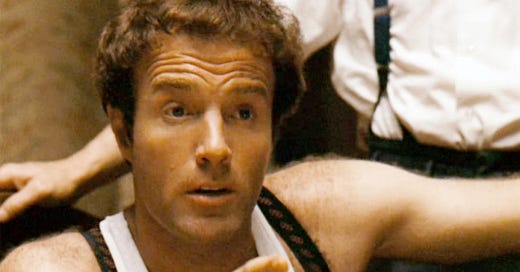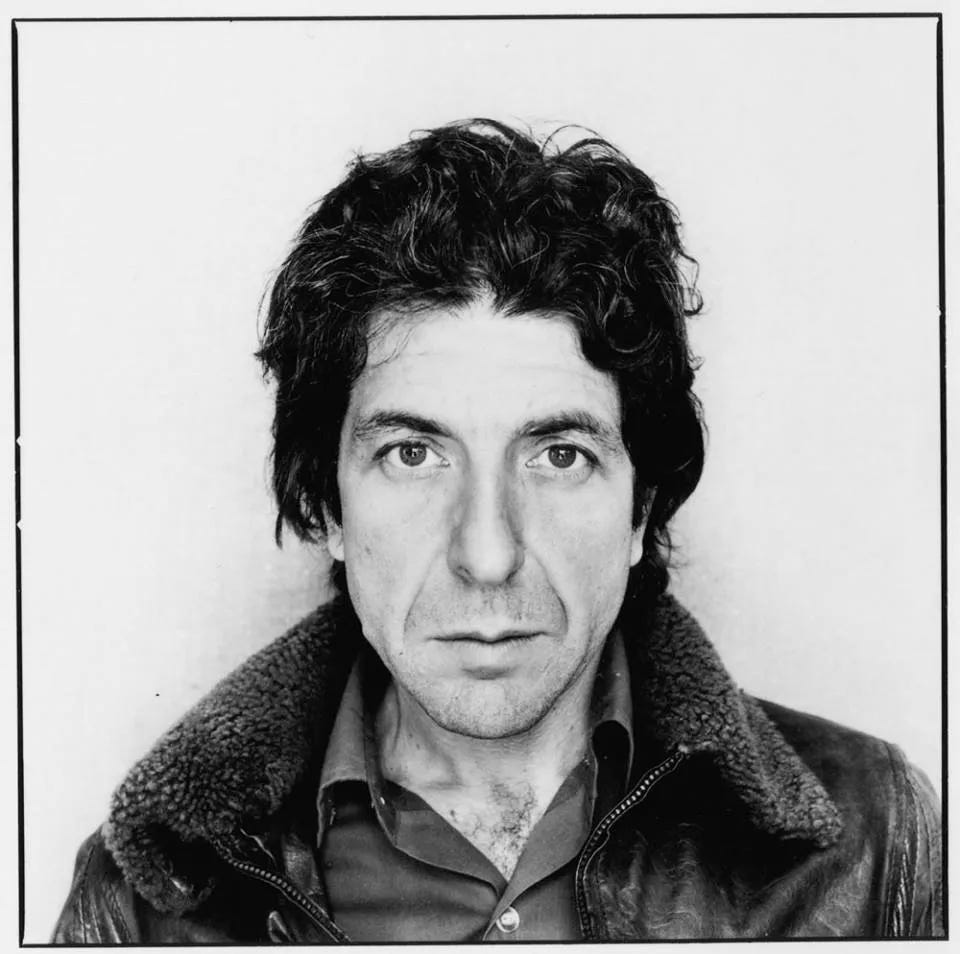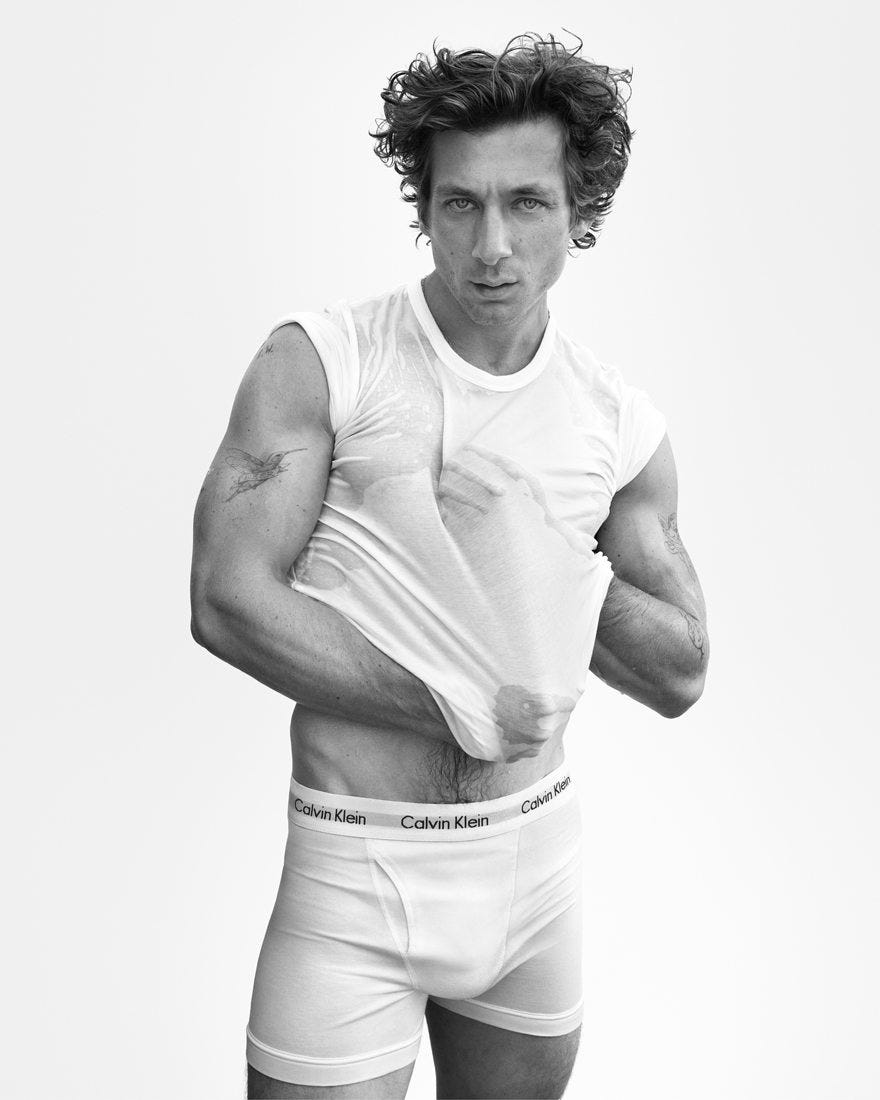I’ve always loved the Leonard Cohen lyric about how he felt oppressed by the figures of beauty, even though it sounded like he had no issue landing the ladies, and most people I’ve talked to said Leonard could “get it” back in the day if the situation had come up. The song, “Chelsea Hotel No. 2,” is equally funny and bittersweet, his remembrances of Janis Joplin, starting famously with her giving him head in the unmade bed of the Manhattan hotel where many of the most famous artists of the 20th century stayed uses a great line from her about how the singer preferred handsome men, but for Cohen she’d make an exception. I like the line because I get where Cohen was coming from. The Western ideas of what makes a man handsome tend to fall along the tall, fair-haired, muscular, etc., but every now and then there’s a blip. Take the late-1960s and 1970s when you had some of the most iconic “traditionally” handsome guys ever, like Robert Redford and Warren Beatty. But at the same time, you had Al Pacino, Elliott Gould, Sidney Poitier, James Caan, and Gener Wilder in leading roles. Great actors who were Italian, Jewish, Black, Hispanic, or from some other ethnic group that had traditionally not gotten a ton of representation throughout the 20th century were starting to show up on movie screens, and it was almost certain that somebody was going to comment on how they looked. Maybe it was their skin color, curly hair, or the shape of their head, but you could find examples of all of those actors I mentioned being discussed as unique somehow or another by the press. If you need a modern version, look no further than “hot rodent” or “sexy rat men” trend that might truly be the most awkward way to describe male celebrities I’ve seen in a long time. Timothée Chalamet, Jeremy Allen White, Josh O’Connor, and a few other younger actors you’ve been hearing about over and over for the last few years have all been lumped together and called…rodents. Rat Boy Summer, or whatever.
The whole thing is awkward. In small part because I don't think anybody wants to be compared to a rat, but the problem grows larger as you zoom out and take into account that the kids don’t know much about history these days. Some kids don’t know what the Revolutionary War was about or which side won the Civil War, so it shouldn’t be all that shocking to learn that they didn’t know that comparing people to vermin has been a tried and true method to denegrate groups of people that the Nazis and Ku Klux Klan utilized constantly. Things look a little worse when you look at some of the people lumped into the “hot rodent” thing and realize they’re mostly Irish, Italian, Jewish. Most people know the tragic story of the third group—of which I’m a part of—in Europe, but I’m guessing given how poor our national memory is, most people might not realize that Italian and Irish immigrants were often targeted by the Klan or other groups that wanted to keep Catholic foreigners from living in America. Finding literature with these groups drawn or described as rodents or other vermin is pretty easy to dig up. I’m not saying that was the intention of whoever coinded the phrase, but since the last few years have been spent calling attention to the way we sometimes might not even realize the sort of harm we’re doing with language, I figure it needed to be said. I’m almost ready to start seeing people referred to as “ethnic” or “exotic” again now that we’ve gotten comfortable comparing stars to rats.
All of this goes back to Leonard Cohen and feeling oppressed by the idea of what’s supposed to be beautiful and what isn’t. I didn’t luck into the same features as Chalamet or Mike Faist. I’m what my ancestors would call zaftig, sonebody once told me (I swear) that I had “little Jewish eyes,” and I don’t have hair on my head. But what I lack on top, I make up for all over the rest of my body. I’m fully Jewish, but my ancestors come from all over instead of one or two shtetls in Poland, so I like to say I’ve got a little bit of Ukranian brawn, maybe the legs come from the Romanian side that I think my complexion comes from, but I could get that part from the bit of Sephardic DNA I’ve got. I’m also largely of peasant stock, so I’m not built like somebody who is meant to spend their days reading from holy books; I’m more of a Tevye. If I were a rich man and didn’t have a body for hauling things, then maybe I’d have more time to study Torah. None of that has ever bothered me much; I like being a bigger guy. I’ve been described as a “friendly Tony Soprano,” which I obviously love, and I wouldn’t have landed my wife if I was a skinny little twig of a man since that’s not what she’s into. I’m somewhat OK with my body. I say somewhat, because I always think I could do without the extra belly or maybe my life would totally change with one of those hair plug operations, but then I let it go after a bit. Those things don’t bother me that much. They didn’t bother me as much as my hairy shoulders and back. That, more than anything, has been a point of personal discomfort since I first noticed the first hair sprouting right beneath my clavicle when I was 18. That was a harbinger of things to come. The stuff on top would fall out, replaced by fuzz all up and down my arms, neck, and back.
At first, I contained it the old-fashioned way. I shaved it. But after it became too unwieldy a year or so later, I started trying different hair removal products. Why? I have no clue. I know the hair on my arms and back was starting to bother me almost as much as the clumps I’d find in the drain after a shower. Add int he fact that I’ve never had great arm definition, and I always felt as if my hands were attached to these big lumps of meat that cats had rubbed up against. God, I wanted to wear basketball jerseys so bad, but I couldn’t bring myself to it.
Things started to change upon one of my many viewings of The Godfather. Somehow I’d never noticed how James Caan as Sonny didn’t bother trying to hide the hair on his shoulders. In fact, Caan, in all his Jewish X Italian Handshake glory, reminded me of so many of the men I knew as a kid. Some were Jews, others Italian, a few Greek, a couple were named Manny and I have no idea what their ethnicity was. My grandpa, Romanian-born, also had that look. My other grandfather, whose own parents came to American from Russia, called him a “dumb bohunk” once. I didn’t know what a bohunk was, and when I heard it a few years later while watching Sixteen Candles, I asked my babysitter what it meant. She didn’t know, and I spent the next decade of my life not finding out the meaning until somebody told me it was just something people in the Midwest called hairy immigrants, mostly ones who spoke German like my grandfather did since Romania had been part of the Hapsburgs empire up until around when he was born. It was an insult, just like the way one of my great-grandparents called another great-grandparent a greena (greenhorn) with absolute disdain because they chewed with their mouth open and spoke mostly in the mamaloshen (mother tongue) instead of English.
These days I actually love my shoulder and back hair. I wear it with pride, because the only other choice is to cover up or shave it, and let me tell you from personal experience that the second option only leads to discomfort. But I also love it because it’s truly who I am. I’m a hairy guy. People call me bearish the same way they might call Timmy Chalamet or Barry Keoghan sexy rat boys, but I’m fine with that since bears are incredible creatures and there isn’t any historical precedent I can find where tyrants are calling for the death of all the bear men. But at the end of the day, I’m happy with more guys who are considered “usually more svelte than muscular, with more pinched, angular features […] often not conventionally handsome” getting their due. Just try to find a better term for them.







❤️ “I’m fine with that since bears are incredible creatures”
My husband (no hair on head, much hair everywhere else, Ashkenazi and Mizrahi) is a classic bear, and I definitely prefer this vintage nomenclature to rat-hunk 🐻